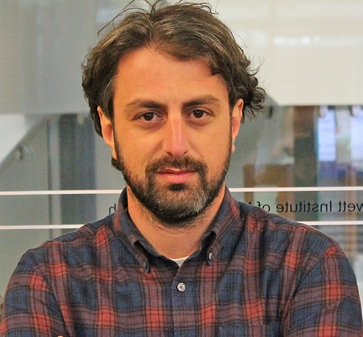ECCO Grant Study Synopsis: Giuseppe D'Agostino
Giuseppe D'Agostino, ECCO Grant Awardee
Brain circuits controlling intestinal inflammation
 Giuseppe D'Agostino Giuseppe D'Agostino© Giuseppe D'Agostino |
Aim of Research
The caudal brainstem, and particularly the nucleus of the solitary tract (NTS), is of critical importance for pathophysiological signals reaching the brain from the gastrointestinal tract. During inflammation, signals from the gut can be integrated in the NTS to initiate a peripherally directed anti-inflammatory response. However, the neuronal circuits underlying this response are unknown, with no genetic, neurochemical and anatomical information available. This gap in knowledge prevents the development of novel anti-inflammatory strategies. Our team has identified discrete subsets of genetically identified neurons in the NTS that are responsive to microbial and inflammatory stimuli.
Methodology
In this project, we will use a range of contemporary genetic tools to manipulate specifically these NTS neurons and their neurotransmitters in vivo and to interrogate their contribution to gut pathophysiology. We will study the effect of these manipulations under normal conditions and during preclinical models of intestinal inflammation.
Proposed timing
This study will encompass three main phases. In phase I, ablation of genetically identified NTS neurons will be achieved using a Cre-inducible adeno-associated viral vector (AAV) encoding for a designer caspase-3 that commits neurons to cell-autonomous apoptosis. In phase II, neuronal activation will be achieved using AAV expressing designer receptors exclusively activated by designer drug (DREADDs). In phase III, site-specific gene deletion of key NTS neurotransmitters will be achieved by introducing permanent loss-of-function mutations at specific gene loci using in vivo CRISPR/Cas9-assisted genome editing. We hypothesise that discrete NTS neurons play a critical role in the maintenance of barrier function and the initiation of a brain-mediated anti-inflammatory response. This study will employ a novel strategy to study the central circuits regulating peripheral inflammation and has the potential to identify novel targets amenable to therapeutic exploitation.


